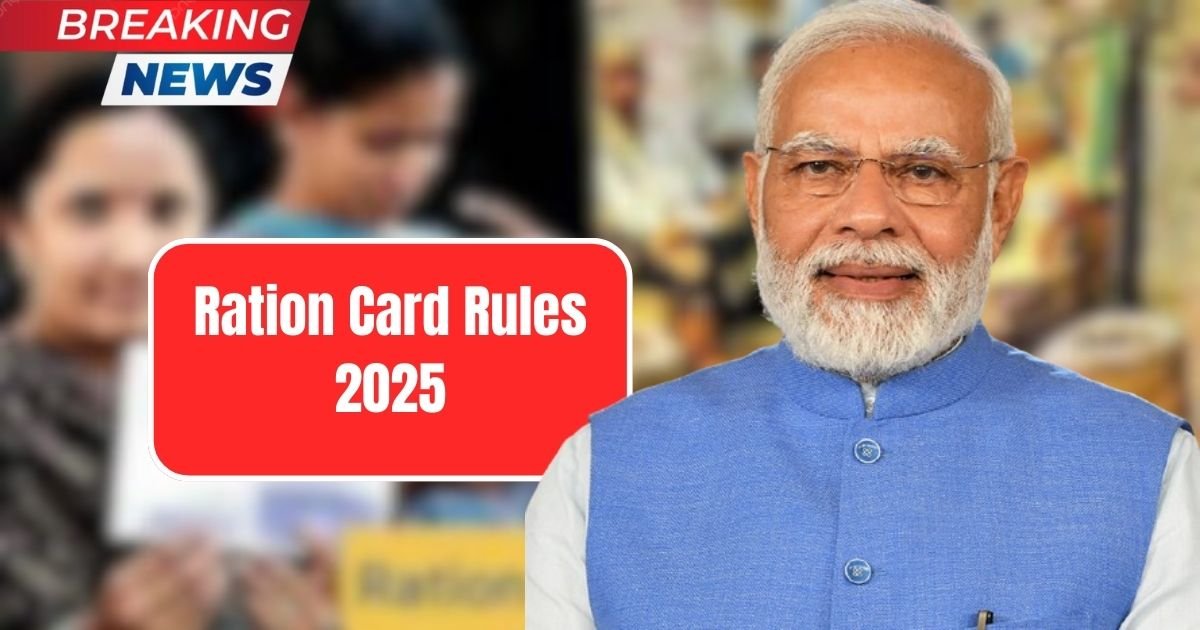Consider a mechanism that has provided food security to millions of people and also plays the critical function of acting as a valid proof of identity- this is what the use of the ration card has become in India. By 2025, the government has brought in a paradigm-shifting change to the ration card system through National Food Security Act (NFSA). The goal of these changes is to make the system more transparent, reduce fraudulence and target the benefits to the most needy. This paper expounds on the recent regulations, providing an easy guide to households on how to remain above the regulations to obtain subsidized food grains without difficulties.
Tighter Eligibility Criteria
The 2025 criteria make eligibility more restrictive in order to support truly vulnerable families. Such households with incomes of more than 2.5 lakh a year, owners of four-wheelers, or those possessing multiple houses may have to lose entitlement. The government has differentiated among urban and rural households based on income limit of 1.5 lakh and 1.2 lakh in the cities and villages respectively. There are special considerations concerning widows, elderly citizens and individuals who happen to be differently-abled and this makes it inclusive. These interventions will help to discourage a diversion of resources by such families who could afford to look after their conditions, leaving the severely needy to receive such fund.
Required e-KYC Adherence
A significant overhaul seeks to make e-KYC compulsory to all ration cardholders on December 31, 2024. Aadhaar based digital verification: authenticated Aadhaar information against those held in ration cards, thereby leaving out any duplicate or fake entries. Refusal to do so will lead to cancellation of benefits to start in January 2025. To do it, cardholders will be required to visit state-specific Public Distribution System (PDS) portals or local offices of the ration facility. The tentative is that beneficiary information will be reliable and the system will become transparent and efficient to over 80 crore individuals dependant on subsidized provisions.
Smart Ration Cards Introduction
State smart ration cards equipped with QR codes are being migrated to after April 2025. These digital cards minimize the chance of duplicity and ease the problem of accessing the rations all over India through a One Nation One Ration Card (ONORC) scheme. Old cards can continue to be used in the gradual rollout of the system, but the households need to update the information before December 2025 to prevent delays. This modernization increases portability, whereby the beneficiaries are empowered to collect the rations in any of the nationwide fair-price shops nationally, which is beneficial to the migrant workforce.
Restated Rational Quantities
The government has rebalanced rations in order to support balanced diets. The quantity of rice and wheat provided to households is 2.5 kg of rice and 2.5 kg of wheat per one person monthly, and pulses, sugar, and salt also depend on the policy of states. This transition defines a transition out of the previous 3 kg rice and 2 kg wheat paradigm, and focuses on dietary diversity. To protect the ability of beneficiaries to access basic foodstuffs, the beneficiaries will be subjected to will be verification of quantities of these plural entitlements at shops designated as fair-price shops.
Punishments Of Lack Of Compliance
Strict penalties on fraudulent practices have been enacted in the form of new rules. Anyone giving inaccurate information or possessing multiple ration cards may be penalised with a fine of up to 10,000 rupees or a jail term of up to six months. Periodical audit/verification checks are supposed to keep ineligible beneficiaries out. Residents should recalculate their cards on time before they have their benefits suspended. These steps are meant to show the government commitment to transparent and equitable PDS.
| unusually large quantity of oil | authentically large amount of oil | (unusual) large amount of oil | unusual/large amount of oil |
|---|---|---|---|
| Eligibility Worth below 2.5 lakh; no four wheelers or multiple properties. | |||
| Deadline ; mandatory Aadhaar-linked e-KYC. | |||
| Smart Cards | Access through phasing by installing QR code; available starting in April 2025. | ||
| Allocation of Ratios: 2.5kg rice, 2.5kg wheat per capita; also pulses, sugar and salt. | |||
| Penalties Penalty unnecessary, applicable are 10,000 fine or 6-month prison term in case of fraud and canceling the card in case of duplications. |
Also Read: EPS-95 Pension Hike 2025: Calls Mount For ₹7,500 Minimum, Govt Yet to Act
